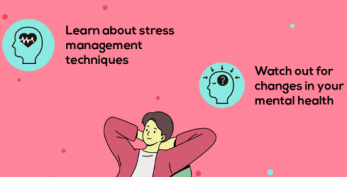

The Evidence-Based Practice Attitudes Scale (EBPAS) is widely used in implementation research, but it has not been adapted and validated for use among general education teachers, who are most likely to deliver...
Recovery from a substance use disorder is defined as a process of improved physical, psychological, and social well-being and health after having suffered from a substance-related condition.
The recovery research institute has put...
This guide highlights strategies for behavioural health and housing providers to conduct outreach and engage with individuals experiencing homelessness, initiate use of behavioural health treatment as they wait to receive stable housing and...
The VNGOC together with NYNGOC and the UNODC Civil Society Unit is organizing an online side event in the margins of the 2023 ECOSOC Partnership Forum on 31 January 2023 at 8.30 AM. The event is titled: The central role of civil society in...
This webinar was hosted by the HSE Health and Wellbeing Alcohol Programme as part of EU Alcohol Awareness Week.
The panel of speakers will discuss the statistics around alcohol use among adolescents and young people in Ireland and the...
World AIDS Day takes place in December each year. This reading list contains a list of research, publications and resources for practitioners relating to HIV/Aids. We also have a network dedicated to HIV and HCV where you can find a...
Sharing needles, syringes, or other drug injection equipment—for example, cookers—puts people at risk for getting or transmitting HIV and other infections.
In addition to being at risk for HIV and viral hepatitis, people who inject drugs...
This side event for the 65th Commission on Narcotic Drugs was originally presented on 14 March, 2022. Organised by INPUD, it was co-sponsored by Médecins du Monde, UNAIDS, UNODC HIV/AIDS Section, the Netherlands and Australia.
In 2021...
The 2021-2026 Global AIDS Strategy has bold and critical new targets on realizing human rights, reducing stigma, discrimination and violence and removing harmful punitive laws as a pathway to ending inequalities and ultimately ending AIDS.
...A new publication by UNAIDS and the World Health Organization (WHO) emphasizes the importance of integrating HIV and mental health services and other interventions, including linkages to social protection services, for people living with...
Sharing drug injecting equipment increases the risk of transmitting and acquiring blood-borne infections, such as HIV and hepatitis B and C. While hepatitis C is the most prevalent blood-borne viral infection among people who inject drugs...
COVID-19 dramatically limited the scale and scope of local health department (LHD) work, redirecting resources to the response. However, the need for essential public health services—including substance use prevention—was not...
A new systematic review and meta-analysis has found that alcohol-targeted brief interventions (short, structured, one-to-one conversations about drinking designed to motivate changes in risky behaviour) delivered in doctors’ offices and...
The United Nations Synthetic Drug Toolkit supports the international community in implementing comprehensive response measures to address the synthetic drug problem.
The toolkit was developed in response to Commission on Narcotic...
This report focuses on children growing up in families affected by drug and alcohol dependence, as well as on the services, programmes and practices that help to protect childhood and guarantee children’s needs while, at the same time...
Drug prevention approaches range from those that target society as a whole (environmental and universal prevention) to interventions focusing on at-risk individuals (indicated prevention).
The main challenges are in matching these...
This guide, intended for parents, practitioners, and policymakers, begins with a list of 7 principles addressing the specific ways in which early interventions can have positive effects on development; these principles reflect findings on...
Earlier this month, Jeff Lee, senior consultant to ISSUP, delivered two webinars that reviewed what prevention of substance abuse entails. The webinars were intended to be a "back to basics” for anyone working in the prevention field that...
Share the Knowledge: ISSUP members can post in the Knowledge Share – Sign in or become a member